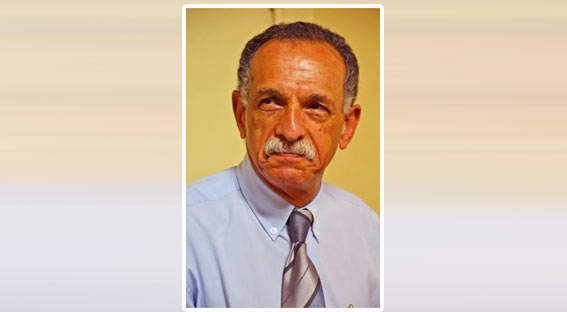Two weeks ago, under the title “150 years of Coptic Press”, I wrote on Watani’s journey in the press field: its past, present and future. This testimony I presented during a celebration that Pope Tawadros II sponsored on 3 December 2022 at the papal headquarters at St Mark’s in Abassiya, Cairo. The celebration marked 150 years on the emergence of Coptic periodicals and newspapers in Egypt, and honoured five current Coptic publications: the four magazines al-Risala, al-Kiraza, Madaris al-Ahad and Magallat Morqos, and the newspaper Watani.
The celebration not only commemorated those five publications, but also presented valuable documentation of the contribution of Copts to the Egyptian and Coptic press scene throughout 150 years. I own that this whetted our appetite in Watani to shed light on this file, not only in what concerns the Coptic press, but also to uncover the role of Copts in the fields of historical studies and library science, and in documenting the history, lives, and achievements of Coptic figures. The current issue of Watani features, on its “Down memory lane” page, a story on the life journey of one such prominent pillar: the Egyptian historian Tewfik Eskaros, one of the greatest Coptic historians of the 20th century, who was also known as Muhandis al-Kutubkhana, literary Engineer of the Great Library, denoting what a singular librarian he was.
Tewfik Eskaros was born on 3 January 1871, and passed away on 24 November 1942. He was among the most notable historians of 19th-century Copts, in addition to his studies and writings on antiquities, archaeology and archaeologists, particularly the Coptic.
Mr Eskaros worked at the Khedival Egyptian Book House, Dar al-Kutub al-Misriya, in Bab al-Khalq, Cairo. This is Egypt’s National Library; it was known then as al-Kutubkhana al-Misriya. His work was so distinguished that King Fuad I assigned him with organising the royal library at Abdeen Palace; which earned him the title Muhandis al-Kutubkhana. In 1927, he wrote the book “A Brief Guide for Visitors of Dar al-Kutub al-Misriya”; the book documented the history of the National Library since it was established.
Mr Eskaros wrote a book in two volumes under the title “Coptic Geniuses and Luminaries”. The first volume was published in 1910, and the second in 1913. The book tackled the biographies of members of Coptic clergy who made contributions to the Church’s history and to management of Church affairs. Mr Eskaros relied in his writings on original, authentic references, and reliable historical sources.
He wrote a number of articles on foreign scholars who were passionate about Egyptian civilisation, and who he had personally known during his time at the Khedival Book House. Among them were Wilhelm Spiegelberg, scholar of Demotic language; Alfred Butler, historian and Coptologist; George Graff, scholar of Arab Christian heritage, and Islamic studies scholar Max Herz. In addition, Mr Eskaros wrote about Egyptian figures who left imprints in the field of Egyptian archaeology, including Aly Bek Bahgat and Mikhail Bek Sharobim.
Mr Eskaros translated four lectures delivered by papyrologist Adolf Grohmann before the Royal Geographical Society in Cairo in 1930. He also translated The Project for the Independence of Egypt, written by Muallim Yacoub in 1801.
Through his work at the Khedival Book House, Mr Eskaros had at his fingertip a great wealth of ancient manuscripts and rare books. This induced him to write a number of articles on Coptic studies; these were published by reputable publications including al-Hilal, Raamsis, al-Mar’a al-Asriya, Misr al-Haditha, Gareedat al-Balagh al-Osboueya, al-Moqtataf, al-Magmaa al-Elmi al-Arabi, al-Mashreq, and al-Megala al-Gadeeda.
Through his librarian work, his documentation of the possessions and acquisitions of libraries, and his writings and researches, the great Egyptian historian Tewfik Eskaros over the years accumulated his own valuable library of books and references, which he gifted to the Coptic Museum. He was among the greatest historians of the 20th century, and truly earned the title Muhandis al-Kutubkhana, Engineer of the Great Library.
Watani International
16 December 2022










